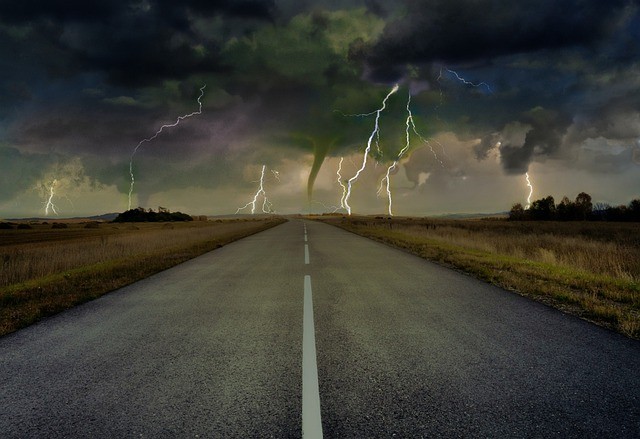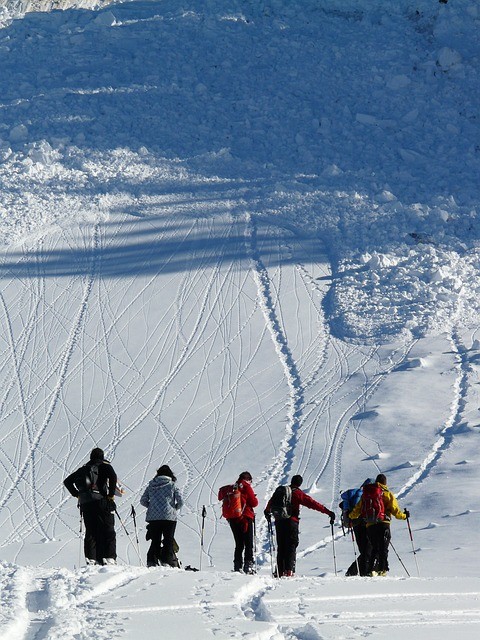In the last 100 years, Americans have survived, overcome and ultimately prevailed over any number of societal, natural or health relate disasters, literally in every decade:
• Spanish Flu of 1918/WW1
• Economic Depression of 1930’s
• WWII in the 40’s
• Asian Flu of 1957
• Vietnam of the 60’s
• 1980’s bought the rise of HIV/AIDS
• 1990’s brought unheard of hurricanes and tsunami’s
• Sept. 11, 2001 unspeakable horror was unleashed on NYC
• 2003 mainland China sent SARS worldwide
2020 brings us the COVID-19 pandemic. In the face of this, Americans have an eternally optimistic zest for life, a feeling of untouchability, remnants of a stiff upper-lip heritage and an affinity for resilience. It may be interesting and informative to look at some crisis situations one may find themselves in. In many of the above circumstances, people were caught unaware, unprepared or oblivious to the signs. Robert Baden Powell founded the Boy Scouts on the principle of “Be Prepared” so let’s roll with that.
HOUSE FIRE/SMOKE
Surviving a house fire depends on preparation and movement. The most critical step is to exit within 2 minutes so planning and preparation are key elements. People over 65 and under 5 are at greater risk due to mobility issues. Additional suggestions include smoke/ CO2 detectors, ground floor bedrooms and upstairs escape ladders (practice deploying and using). If trapped inside, stay low, stay damp, place wet towels under doors and signal from a window. Do not return to a burning building -Parents and Healthcare professionals, this means YOU. Remaining outside can actually aid first-responders with rescue efforts.
TORNADO
The National Oceanic and Atmospheric Administration (NOAA) classifies tornadoes as a highly destructive weather event and the US experiences roughly 1200/year. Interestingly, most last 10 minutes or less. A tornado ‘Watch ’means conditions are favorable, a ‘Warning’ means one has been sighted. If you are in a building, take cover in small enclosed spaces like closets, bathrooms and basement areas away from windows. If you are in a vehicle, do not chase it or try to outrun it. Use a ditch or underpass for cover. Stay in your vehicle if possible, for protection. Historically most tornadoes occur between 5-6 pm in ‘Tornado Alley’ of the Plains States, but they can occur anywhere at any time. Tornadoes need vertical air movement usually from thunderstorms with significant wind speed/direction. They require plenty of space for rotation to develop which is why they do not generally develop in large metropolitan areas.
DOG ATTACK
Any dog, not just pit bulls and rottweilers can attack with or without warning, so never tease any dog especially if confined or chained. Growling, baring teeth, flattened ears and lowered body stance are red flags. Your eye contact or smiling can be interpreted as aggressive by the dog (your pearly whites resemble bared teeth). Stand sideways and back away until out of sight. The host of ‘Running Wild With Bear Grylls’, Mr. Grylls, a survival instructor, recommends not to run unless attacked by a pack: shout, use a stick or jacket or something with a handle to strike the dog or wedge in the jaws. Try to fall on top of the animal or cover with a jacket in order to contain the attack. Decide to protect your most vulnerable areas; neck, face, chest, groin and give up the outer flesh of your thigh as a bite site. “It’s not about the fight in the dog, it’s about the dog in the fight” in other words, do not give up and go for the win.
SNAKE BITE
Above all, do not pick up the snake! Contrary to popular belief, the old slash and suck method seen in old western movies is no longer recommended. Don’t apply a tourniquet, use ice or immerse in water and DO NOT self-medicate with pain relievers or alcohol. The recommendations are to seek medical attention ASAP, stay calm and photograph the snake if possible. It is best if you can lay down or sit in a neutral position and remove any possibly restricting clothing.
AUTOMOBILE ACCIDENT
The number one response is always to help yourself first and then assess the situation. Can you help? Removing victims is generally not recommended unless there is threat of fire. Check for bleeding, apply pressure, elevate/tourniquets/obstructed airways/shock/hyper or hypothermia, which are all situations healthcare professionals do as second nature.
MUGGING
Be aware of your surroundings! Put your phone away, remove ear buds, walk purposely and erect, scan your area, be alert at corners, do not use dark or unfamiliar routes and never walk alone. Try to dress like a local and leave your vanity display at home. Muggers spot tourist T-shirts a mile away and genuinely love your Rolex. So:
• Give them what they ask for and nothing more. (Keep your mouth shut)
• Do not be defiant. Throwing your wallet down has just escalated the situation.
• Confident without submissiveness is tricky but vital. Muggers just want your belongings and want out of this encounter as quickly as you do.
FLOODING
Most people underestimate the power of moving water, usually to their detriment. Take warnings seriously and evacuate ASAP. Load up your loved ones and pets and move to higher ground. Belongings can be replaced. If you are stranded in a building, move up, take water, blankets and paint for SOS signs. Do not drive through moving water. If you become trapped in a vehicle, open windows and move up. Try to stay with your vehicle and ride it out as it offers significant protection. Flood water is deeper and stronger than you think.
AVALANCHE
Recommendations include moving to the side if possible, grabbing onto something sturdy like a tree, branch or rock, swimming or thrashing around to prevent burial, holding one arm up, cupping hands over mouth and nose to create a breathing space. Stay calm and breathe deep to expand chest area and do not panic as this creates more CO2.
DESERT
Notify someone when you plan to travel through a desert. If you become stranded, keeping cool is primary followed by hydration. Starvation is the least of most Americans’ immediate concern. Stay with your vehicle as it offers protection and numerous survival aids like mirrors, horns, gas and oil. Rest during the day, build fires for warmth and signaling at night, watch out for rattlesnakes and flash floods and drink cactus water only as a last resort. It will make you sick. Don’t sit on the sun baked ground. Construct a still using plastic and a cup for water.
EARTHQUAKE
No area is immune from earthquakes but obviously some are more prone than others. General tips for you and your loved ones include dropping to the ground, protecting vulnerable body areas, taking cover under sturdy furniture and stay away from glass and non-weight bearing walls. Be aware of falling debris or heavy overhead fixtures and remain in place until the shaking stops. Earthquakes generally occur suddenly with little to no warning to the general public.
SHARK ATTACK
Clearly pay attention to warnings, but typically we believe ourselves to be the exception.
• Play Defense: keep eyes on the shark, stay calm, resist sudden movements and maintain a defensive stance.
• Play Offense: Hit, kick, punch any and all available areas especially the eyes, nose and gills.
• Escape and get Help: Get out of the water. Call 911, Lay flat, staunch bleeding and prevent shock
All of these situations are possible, most are unlikely to happen to most of us. I did not address my own personal fear of bear attack because honestly, I never plan to put myself anywhere near an area where that is possible. (The universal recommendation to stay calm; another reason I will avoid these places.) For healthcare professionals, the first instinct is to rush in and assist. Sometimes this is the best course of action but not always. These occurrences are beyond the norm but all of us can benefit from pausing briefly to imagine ourselves, our neighbors and our loved ones experiencing these situations.
NHS Solutions is keeping our neighbors along the West Coast in our thoughts and prayers as they are dealing with the massive volume of wildfire. We have many Interim Nurse Leaders in California and are hearing first hand what they are experiencing. Stay safe everyone. That is our top priority.
“By failing to prepare, you are preparing to fail,” Benjamin Franklin
“Although the world is full of suffering, it is also full of overcoming it,” Helen Keller


